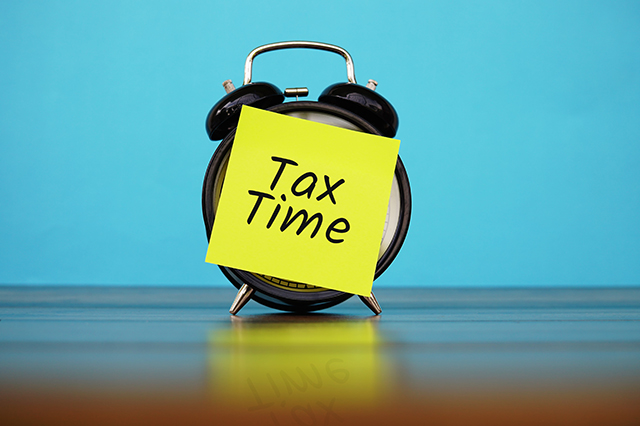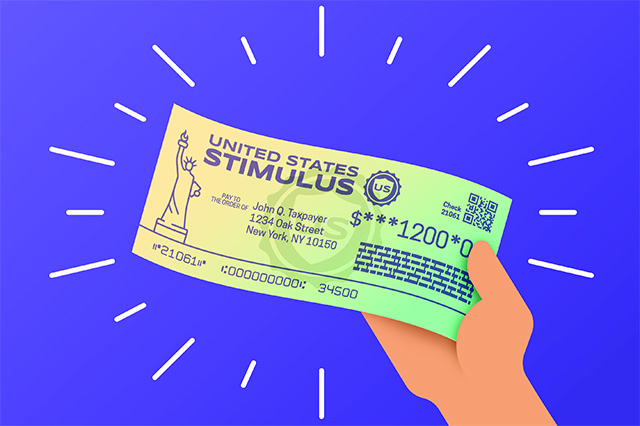Did you get a stimulus check last year? The stimulus payments, or Economic Impact Payments, affected millions of people who were determined eligible by the IRS in 2020. Though there’s still talk of a third stimulus check just around the corner, you only need to consider the first two stimulus payments when you’re doing your 2020 taxes. If you got a stimulus payment, is that money taxable? Do you have to record it when you file your taxes? And what about if you were eligible for a payment, yet somehow did not receive it? We’ll answer all those questions and more.
Who Qualifies for the Stimulus Payments?
The federal government sent out two different rounds of payments in 2020. The first was under the CARES Act, and the second was under the Coronavirus Response and Relief Supplemental Appropriation Act.
The first stimulus payment, which went out in April of 2020, was $1,200 per person and $500 per child. The second stimulus payment, which just went out in December of 2020, was $600 per person and $600 per child. But not everyone qualified for these payments. Those that qualified included individuals with an annual income of up to $75,000, married couples with a joint annual income of up to $150,000 and individual heads of household (read: single parents) with an annual income of up to $112,000.
Is the Money from My Stimulus Payments Taxable?
You do not have to pay taxes on your stimulus payments. The money from your stimulus payments is not considered income by the federal government, and so you do not owe any taxes on it. That money is yours.
Do I Have to State My Stimulus Payments When I File My Taxes?
Let’s say that you got all of the stimulus payments that you qualified for, and that your life circumstances haven’t changed since then. You haven’t gotten married, your income didn’t drastically decrease, you didn’t have a baby, and nothing else happened that could affect the amount of money you were owed. In that case, you don’t have to do anything! The IRS is aware of the money they paid you, and you can file your taxes as normal.
When you received your stimulus payments, you should have also received a document titled Notice 1444 for the first stimulus and Notice 1444-B for the second stimulus. These notices feature information about the amount of the payment, how the payment was made and how to report payments that weren’t received. Even if you are not planning on using these notices, file them in a safe place with the rest of your tax documents so that you can refer to them if you need to.
However, if you didn’t get the stimulus payments that you were owed, or if you didn’t receive them in full, there’s still something you can do about it.

What if I Didn’t Receive My Stimulus Payments?
This is where taxes really come in to the stimulus payment conversation. What if you never got that money? If you didn’t receive a stimulus payment but still qualified it, or if you didn’t get the full amount that you were owed, you can be eligible to claim a “recovery rebate credit” on your tax return. Even if you are not required to file a tax return for 2020, you do have to file one if you want your recovery rebate credit.
If you want to see if you’re eligible for the recovery rebate credit, you need to know the amount of any stimulus payments that were already issued to you in 2020, and have documentation for it. This is where Notice 1444 and Notice 1444-B come in handy. The recovery rebate credit will then be reduced by any previous stimulus payments. Then, you need to fill out the Recovery Rebate Credit Worksheet (Form 1040), which can help you calculate if you are eligible for the credit.
If, as mentioned above, your financial situation has changed during 2020, this is the time for you to state the changes and get the credit that you qualify for. According to the IRS, the economic impact payments were based on your 2018 or 2019 tax information, but the recovery rebate credit is based on the information you include on your 2020 tax return.
Can Anybody Help Me With This?
Taxes are already confusing enough without all of the extra complications of the economic impact payments. But fortunately, you don’t have to file your taxes all on your own. TurboTax is ready to help you with everything from stimulus payments to recovery rebate credits. With special COVID-19 questions, it makes the process of filing your 2020 taxes simple and easy. You don’t need tax knowledge or even an appointment to make sure that your taxes are done right and you get every benefit you’re eligible for. Plus, AAA members get up to $20 off online federal products.
Save now with TurboTax.
Did you get your stimulus payments? Are you claiming a recovery rebate credit? Let us know in the comments below.















